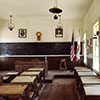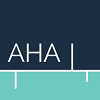Since 2021, a partisan political campaign to wrest control of American public education from perceived ideological enemies has gained momentum across the nation, with at least 22 states passing laws or issuing executive orders that attempt to limit what public school teachers are permitted to teach. The language of these proposals has changed over time, but most visibly, state legislatures have restricted the teaching of race- and gender-related topics in K–12 schools. Over the last year, this campaign has broadened to include new restrictions on public higher education, targeting tenure protections and imposing new layers of oversight over the content of courses and the structure of curricula. Such laws and policy proposals have made it more difficult for many K–12 history teachers and faculty at public higher education institutions to fulfill their duties with integrity and fidelity to the highest intellectual standards of our discipline.
In July 2021, the AHA Council, along with the American Association of University Professors, the Association of American Colleges and Universities, and PEN America, approved a Joint Statement on Legislative Efforts to Restrict Education about Racism in American History. Since then, as part of its chartered mission to advance historical understanding and history education in the United States, the AHA’s Freedom to Learn initiative has been responding to individual pieces of legislation with letters to state legislators.
You may have wondered, What is the process of putting one of these letters together?
The first step is monitoring. During active legislative sessions, armed with Google Alerts for the most common phrasing, notification emails from legislative monitors, mailing lists from individual committees, updates from AHA members, and regular visits to the websites of organizations including PEN America and Education Week, AHA staff members Katherine Brausch, Julia Brookins, and Brendan Gillis watch for bills to be introduced. From January to March, while most state legislatures are in session, this is a flood; from April to June, more of a trickle.
The Freedom to Learn initiative has been responding to individual pieces of legislation with letters to state legislators.
Once related bills or provisions in larger bills appear, we read them carefully, analyzing the full text to determine whether they are likely to have a significant impact on historians’ work and which clauses are most likely to affect the teaching of history. Sometimes, a negative effect on history education or scholarship is obvious; in other cases, the bills’ language obscures the potential consequences. Bills prohibiting “divisive concepts” tend to be boilerplate, though the precise wording has evolved over time as legislators respond to criticism; those undercutting academic freedom in universities have been more individualized. When feasible, we reach out to a local contact to understand the bill’s context and whether a letter from the AHA might be helpful. If it would, we then decide which elements of the bill to emphasize and when to send the letters—decisions based on the legislative calendar and our estimation of the approaching legislative trajectory, often relying on advice from local members.
State legislative processes do not always make this work easy. Bills often linger for months in a kind of legislative purgatory, only to be rushed through with little debate in the space of 24 to 48 hours. In other cases, legislators add education provisions to seemingly unrelated proposals. In April 2023, the sponsors of North Carolina’s House Bill 23 added a rider to a bill focused on local airport administration that authorized the Beaufort County School District to adopt the controversial and untested Hillsdale College K–12 curriculum. In this case, the AHA drafted a statement opposing this attempt to use airports to subvert education policy, only to have the clause removed with little explanation. In November 2023, our team updated the AHA’s objections to Ohio’s Senate Bill 83, because the measure’s advocates had already excised or softened many of the passages we quoted in an earlier letter to state senators.
So our work requires that we stay nimble and research each state’s specific legislative process: When and where do committees meet? Will they accept written testimony? When will they vote on the bill? When will the bill be read in the full chamber? We try to send the letter as close to a vote as possible, so it will be fresh in legislators’ minds, while ensuring they have the time to read it.
To expand their impact, we also share these letters with members and contacts in the state, urging them to contact their legislators, and with local press and media outlets. We can help identify what bills are problematic and explain how and why we oppose them. Citing the authority of the AHA, our words carry weight with legislators, but such statements are always more effective when they are repeated, emphasized, and amplified by local constituents. This is where our members and other proponents of public history education come in. A personal letter, phone call, or email from a concerned constituent can often accomplish more in shaping the decisions of elected officials than any public statement.
Legislators pay attention to the AHA’s advocacy, some contacting us to thank us for our comments. The AHA issued a statement opposing Florida’s House Bill 999, a comprehensive anti–academic freedom bill in early 2023. However, the final version of HB 999 included none of the language objected to in the AHA’s letter. Similarly, many recent “divisive concepts” bills have excluded the prohibition on curriculum that makes students feel “discomfort [or] guilt,” which the AHA has repeatedly highlighted as not only deleterious to accurate history education but broadly unpopular.
With no signs of this kind of legislative activity slowing down, the AHA will continue to work to protect all teachers’ ability to teach accurate history with integrity. We ask members to join us in contacting your legislators when such bills arise in your state and to donate to the AHA Advocacy Fund to support this work.
Katherine Brausch is program analyst at the AHA and a PhD candidate at the University of Michigan. Julia Brookins is senior program analyst, teaching and learning, at the AHA.
Tags: AHA Activities Behind the Scenes at the AHA Advocacy

This work is licensed under a Creative Commons Attribution-NonCommercial-NoDerivatives 4.0 International License. Attribution must provide author name, article title, Perspectives on History, date of publication, and a link to this page. This license applies only to the article, not to text or images used here by permission.
The American Historical Association welcomes comments in the discussion area below, at AHA Communities, and in letters to the editor. Please read our commenting and letters policy before submitting.
Comment
Please read our commenting and letters policy before submitting.










